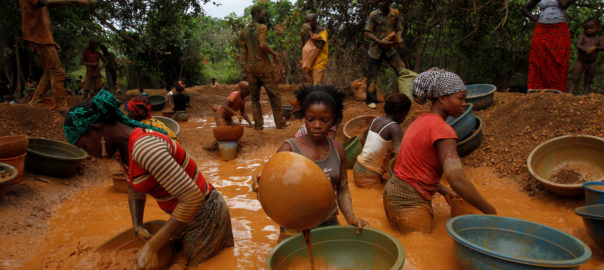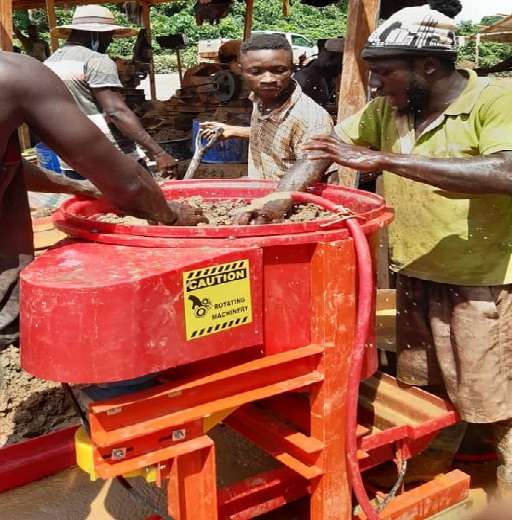A new gold extraction process technology has been tested at a mining project site at Adansi North in the Ashanti Region.
The technology which is being handled by a non-profit organization called Development Gold Ghana (DGG) is said to eliminate the possibility of poisonous toxic chemicals and optimize productivity.
According to a statement by the organization,
“The process, called the “Goldkacha”, does not only optimize productivity but also eliminates the possibility of this poisonous toxic chemical being washed into our rivers and streams and thereby contaminating our food supply
The statement added that, the organization was committed to finding practical solutions that eradicate mercury from the gold extraction process and also noted that, the results were encouraging and that the technology had been earmarked as a suitable mercury-free alternative to traditional gold panning.
The statement further went to say that mercury was a potent, yet toxic, element that allowed people around the world to extract gold concentrate during the amalgamation process, and that the use of the chemical by artisanal and small-scale gold miners accounted for 37 per cent of global mercury emissions exposing workers to toxic fumes with often detrimental health impacts.
DGG and the Small-Scale Gold Producers
It further went on to say that, DGG had been incorporated as an NGO which existed to create a viable and inclusive mining economy in Ghana by linking international markets with responsible, small-scale gold producers.
“The initiative shall result in more resilient and sustainable mining communities, transparent and traceable supply chains, and supply chain assurance for the off-takers of responsible gold.
“Most of all, it will demonstrate the ability of our nation to show that gold recovery is a positive driver of sustainable development. By mobilizing resources for investment into responsible, legal, small-scale mining, Development Gold Ghana shall build the capacity of small-scale responsible mining efforts in Ghana.”
The statement also said that DGG is aimed at the formalization and certification of Artisanal and Small-scale Gold Mining operations (ASGM); demonstrating provenance, traceability and transparency throughout the supply chain.
It further said DGG would remediate and improve environmental management of retired mine sites, restore farms and reforestation of degraded land thereby improving food availability and off-setting carbon emissions through sequestration.
The statement noted that the organization was also aiming at alleviating poverty through job creation and promoting alternative livelihoods in the agricultural sector, as well as optimizing production of responsible gold through the provision of capital equipment, among other things.
DGG strategy, it said, was underpinned by several core elements, including a core vision to support the host government to create a sustainable mining landscape while attaining key Sustainable Development Goals (SDGs)

Mercury
Artisanal and small-scale gold mining is a vital source of income, but some activities and extraction methods also makes it very dangerous especially with miners using toxic mercury to separate the gold from the ore.
Unfortunately, its largest use globally is found in small-scale gold mining.
Mercury is a shiny liquid metal that attacks the nervous system. Exposure can result in life-long disability, and is particularly harmful to children. Mercury in higher doses can kill as well.





















